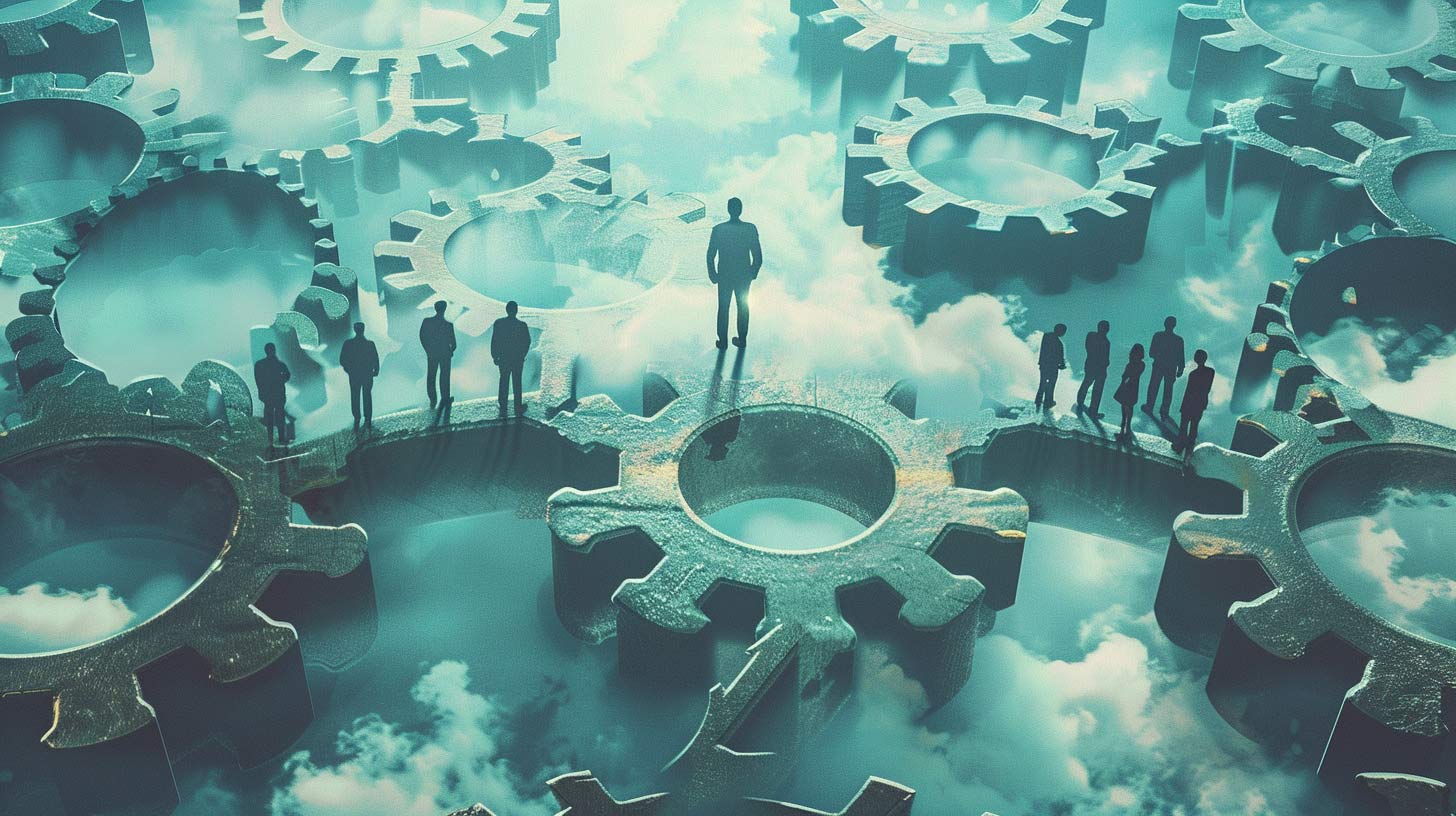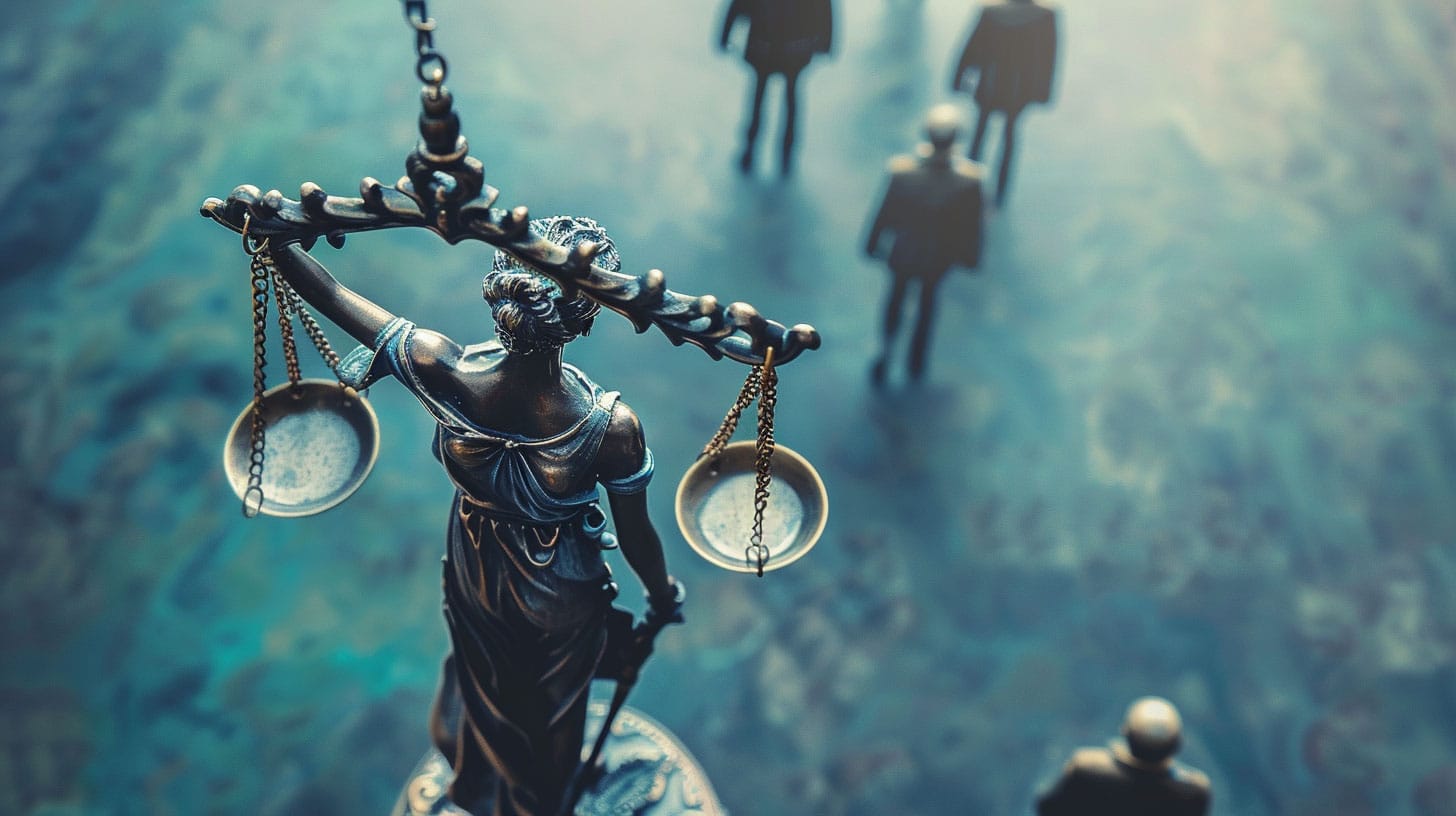Decentralized Autonomous Organizations (DAOs) are rapidly emerging as a pivotal element in the blockchain and cryptocurrency landscapes, redefining how projects and communities govern themselves without centralized authority. As these entities grow in popularity and scale, the complexities of effectively managing a DAO become apparent. This introductory exploration aims to shed light on the various governance challenges that DAOs encounter. From decision-making difficulties and scalability issues to legal uncertainties and member participation, understanding these challenges is essential for anyone involved in or considering a DAO. As we delve deeper, we will uncover the intricate dynamics of DAO governance and the potential solutions to enhance their efficacy and sustainability.
Complexity of Decentralized Decision-Making
Decentralized decision-making is one of the foundational principles of DAOs, ensuring that power and control are distributed among all members rather than centralized in a single authority. However, this approach introduces significant complexities that can affect the efficiency and effectiveness of the organization. Without a centralized authority, decision-making requires consensus or significant majority approval, which can be challenging to achieve, especially in larger groups.
For instance, strategic decisions such as altering protocol rules, reallocating significant funds, or changing governance structures can become mired in lengthy discussions and debates. The need for widespread agreement often leads to slower decision-making processes. Moreover, the diversity of opinion in a decentralized environment can sometimes escalate into conflicts or create factions within the community, potentially leading to splits or "forks" in the project. These situations highlight the challenges of maintaining unity and prompt decision-making within the decentralized framework of a DAO.

Scalability Issues
Scaling DAO operations presents unique governance challenges that can become more pronounced as the organization grows. As membership increases, the mechanisms that initially supported efficient decision-making can become overwhelmed, leading to bottlenecks and delays in the governance process. This can undermine the agility and responsiveness that are often touted as key advantages of DAOs.
For example, as the number of participants in a DAO increases, the volume of proposals can grow exponentially. This not only slows down the processing of decisions but also increases the cognitive load on members who are expected to vote knowledgeably on each issue. Moreover, larger DAOs may experience difficulties in maintaining a cohesive community spirit or shared goals, as diverse interests and agendas make it harder to reach consensus.
Token Distribution and Power Imbalances
One of the fundamental challenges in DAO governance is managing the impact of unequal token distributions, which can create significant power imbalances within the organization. In many DAOs, voting power is directly tied to the number of tokens a member holds, which can lead to a scenario where a small number of members with large token holdings exert disproportionate influence over decisions. This centralization of power contradicts the decentralized ethos that DAOs aim to embody, potentially undermining the fairness and equity of the decision-making process.
For instance, in some high-profile DAOs, the majority of governance tokens are often held by the founders and early investors, which can skew decision outcomes in favor of their interests rather than the broader community. This situation can deter new participants from joining or contributing to the DAO, as they may feel their voices will be marginalized.
To address these challenges, some DAOs are exploring innovative governance models that decouple voting power from token ownership. For example, reputation-based voting systems (like the one at Colony) allocate influence based on members' contributions and activities within the DAO rather than their token stake. Another approach is quadratic voting, which reduces the marginal voting power of each additional token, helping to level the playing field between large and small token holders. These models aim to create more equitable governance structures that can sustainably support the growth and health of DAO communities.

Security and Technical Vulnerabilities
DAOs, while innovative in their governance structure, are not immune to technical challenges and risks, particularly those associated with the smart contracts that underpin their operations. Smart contracts are automated, self-executing contracts with the terms directly written into code. While they eliminate the need for intermediaries and enhance transaction efficiency, they also expose DAOs to potential vulnerabilities if not properly designed and audited.
Security breaches in DAOs can have devastating consequences, as was famously demonstrated by "The DAO" attack in 2016. In this incident, an attacker exploited a vulnerability in The DAO's smart contract on the Ethereum blockchain to siphon off one-third of its funds, which were worth millions of dollars at the time. This not only led to significant financial losses but also sparked a major controversy resulting in a hard fork of the Ethereum blockchain.
From such breaches, the blockchain community has learned the critical importance of rigorous security audits and continuous monitoring of smart contracts. Implementing best practices in smart contract development, such as comprehensive testing, code reviews by independent experts, and bug bounty programs, are now standard in the industry. Additionally, many DAOs are adopting more sophisticated security frameworks and emergency stop mechanisms to mitigate risks and enhance system resilience against potential attacks.
These lessons are vital for the ongoing development and refinement of DAO governance structures, ensuring that they can withstand both existing and emerging security threats in the decentralized landscape.
Legal and Regulatory Challenges
DAOs operate in a relatively new and rapidly evolving legal landscape, which presents a unique set of complexities and uncertainties. One of the primary legal challenges facing DAOs is the ambiguity surrounding their status as legal entities. Unlike traditional companies, which are recognized as legal persons with the ability to enter into contracts, own assets, and incur liabilities, DAOs exist primarily as a set of smart contracts on a blockchain, lacking clear legal recognition in most jurisdictions.
This legal ambiguity raises significant questions about liability and governance. For example, if a DAO enters into a contract or its operations cause harm, it's unclear who is legally responsible—whether it be the token holders, the developers, or the DAO itself as an autonomous entity. Moreover, without legal personhood, DAOs face difficulties in traditional legal frameworks, such as owning property or bringing lawsuits.
Regulatory challenges also loom large. Different jurisdictions may have varied interpretations of what a DAO is and how it should be regulated. Some regions might regulate them under existing securities, financial, or corporate laws, while others might develop new regulatory frameworks specifically tailored to decentralized organizations. Changes in regulation could dramatically affect how DAOs operate, potentially imposing new compliance obligations or restricting certain activities.
The ongoing development of regulatory frameworks is crucial for the future of DAOs. It could either provide clarity and legal security, fostering broader adoption, or pose significant operational challenges that could stifle innovation and restrict the growth of decentralized governance models. DAOs and their members must stay informed and engaged with regulatory developments to navigate these challenges effectively and ensure compliance.

Reputation and Trust Issues
One of the intrinsic challenges DAOs face is building and maintaining trust within a decentralized network where interactions are often anonymous or pseudonymous. Without the traditional face-to-face interactions or centralized authorities to enforce rules, DAOs must rely heavily on trust among members to function effectively.
Reputation systems, like the one in Colony, are increasingly becoming a fundamental part of the solution to these trust issues. In a DAO, reputation can serve as a proxy for trustworthiness and contribution history, helping to ensure that decision-making power is allocated to members who have demonstrated commitment and value to the community. These systems typically track and quantify the contributions of members, whether it’s through completed tasks, voting activities, or other forms of participation.
Transparency mechanisms also play a critical role in fostering trust. Since all transactions and decisions are recorded on the blockchain, members can audit and verify actions independently, which helps in maintaining accountability. Open communication channels and clear documentation of processes and decisions further enhance transparency, making it easier for members to trust that the DAO operates fairly and according to its rules.
However, implementing effective reputation systems and ensuring operational transparency can be complex. The design of these systems must balance fairness, accuracy, and the avoidance of manipulation. For instance, a reputation system that overly favors early members might discourage new participants, while one that resets too frequently might fail to build meaningful trust over time.
Ultimately, developing robust mechanisms for trust and reputation in DAOs is crucial for their long-term success and scalability. These systems must evolve continuously to adapt to new challenges and ensure they align with the DAO’s goals and the diverse needs of its membership.

Integration with Traditional Systems
Integrating DAOs with traditional business systems and legal frameworks presents a unique set of challenges. The inherent differences in operation and structure between decentralized networks and traditional entities can create hurdles that complicate such integrations.
One of the primary challenges is the legal recognition of DAOs. In most jurisdictions, DAOs operate in a legal gray area, as most legal systems are not designed to recognize a decentralized group without a central governing body as a legal entity. This poses significant challenges in terms of liability, taxation, and compliance with regulations, which are typically designed around traditional corporate structures.
For example, the Wyoming DAO Law has attempted to address this by allowing DAOs to be recognized as DUNAs, which provides them with a legal framework within which to operate. However, integrating into this system requires navigating complex and often untested legal waters, and many DAOs struggle to fit their operations into the requirements laid out by such legal frameworks.
Additionally, integrating with traditional financial and business systems can be problematic. Banking and financial services are often reluctant to serve businesses that they cannot easily classify or that operate with the level of transparency and control that traditional companies do. DAOs, with their anonymous memberships and decentralized control, often fail to meet conventional due diligence standards.
Despite these challenges, some DAOs have made significant headway. For instance, MakerDAO has successfully integrated with various traditional financial protocols to offer decentralized finance services that interface with the real world, such as offering collateralized loans. Their success shows that with the right legal and regulatory framework, effective integration is possible, paving the way for more widespread adoption.
Navigating these integrations remains a dynamic and evolving area within the blockchain and DAO space, necessitating ongoing innovation and adaptation to bridge the gap between the new decentralized models and the established systems of governance and commerce.
Join the Colony Community
Stay connected and dive deeper into the world of on-chain organizations with Colony. For the latest updates, insights, and discussions, follow us on our community channels:
- Website: Visit our website
- Twitter: Follow us on Twitter
- Discord: Join our Discord community
- Github: Find Colony on Github
Together, let's build the future of decentralized collaboration.